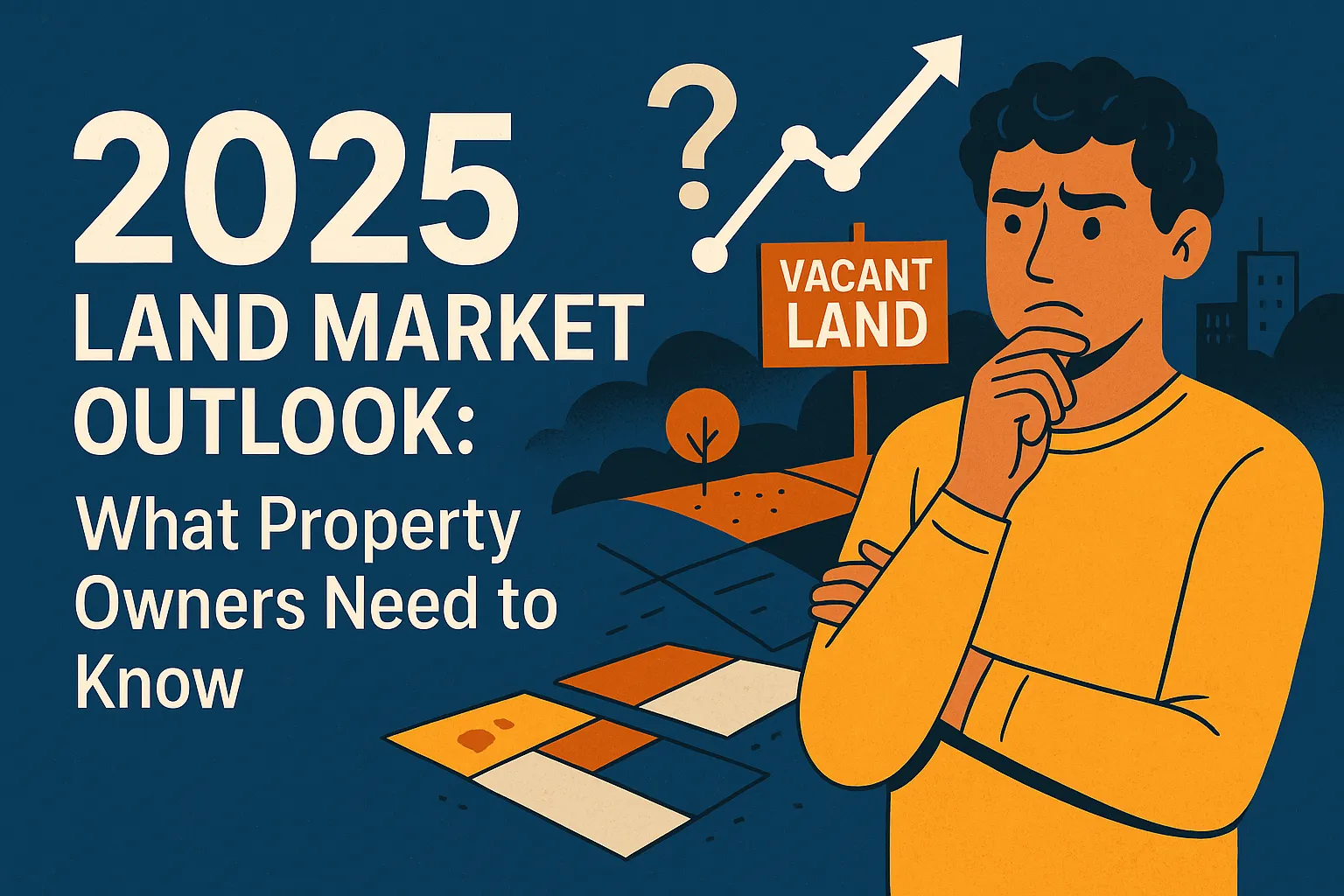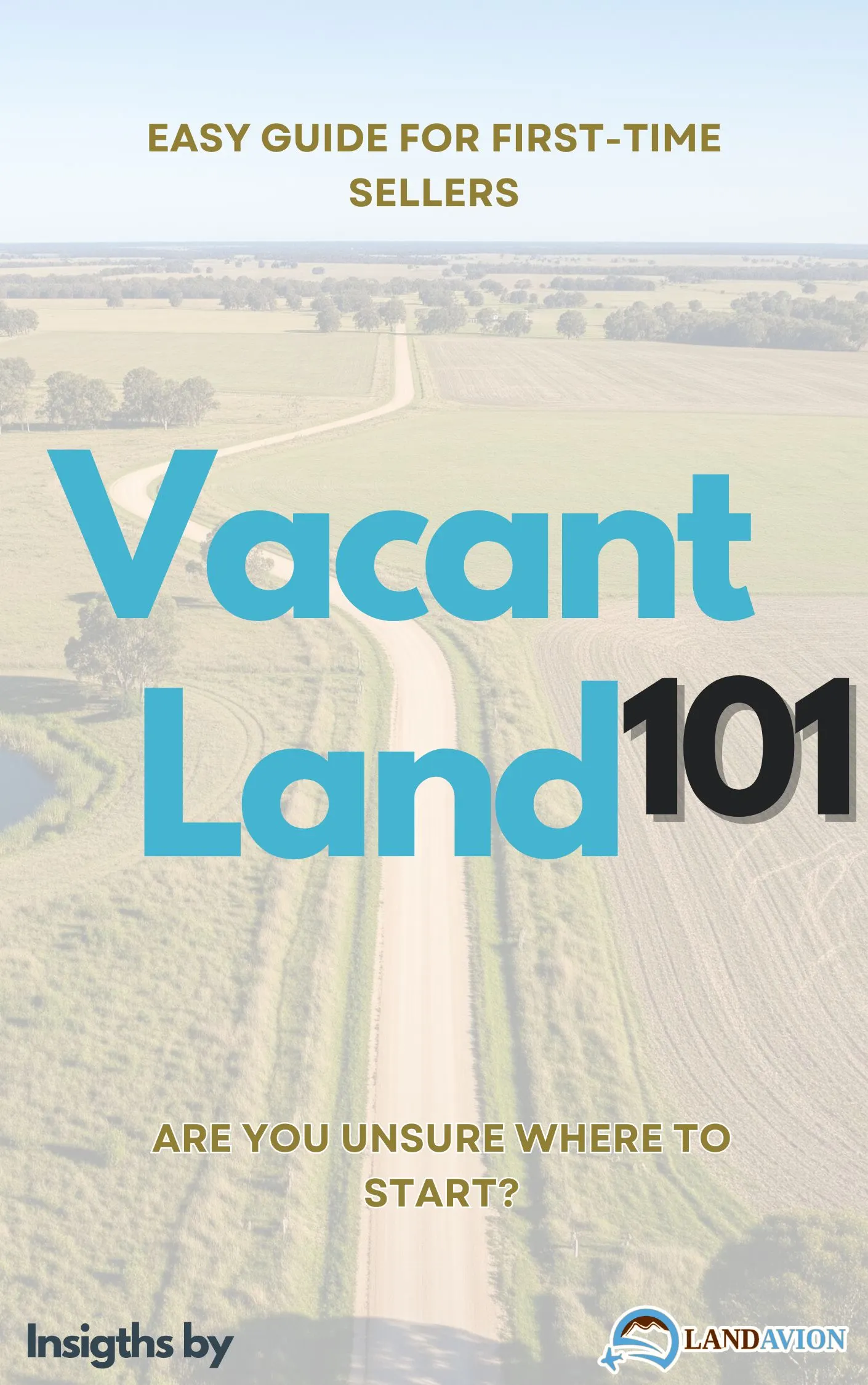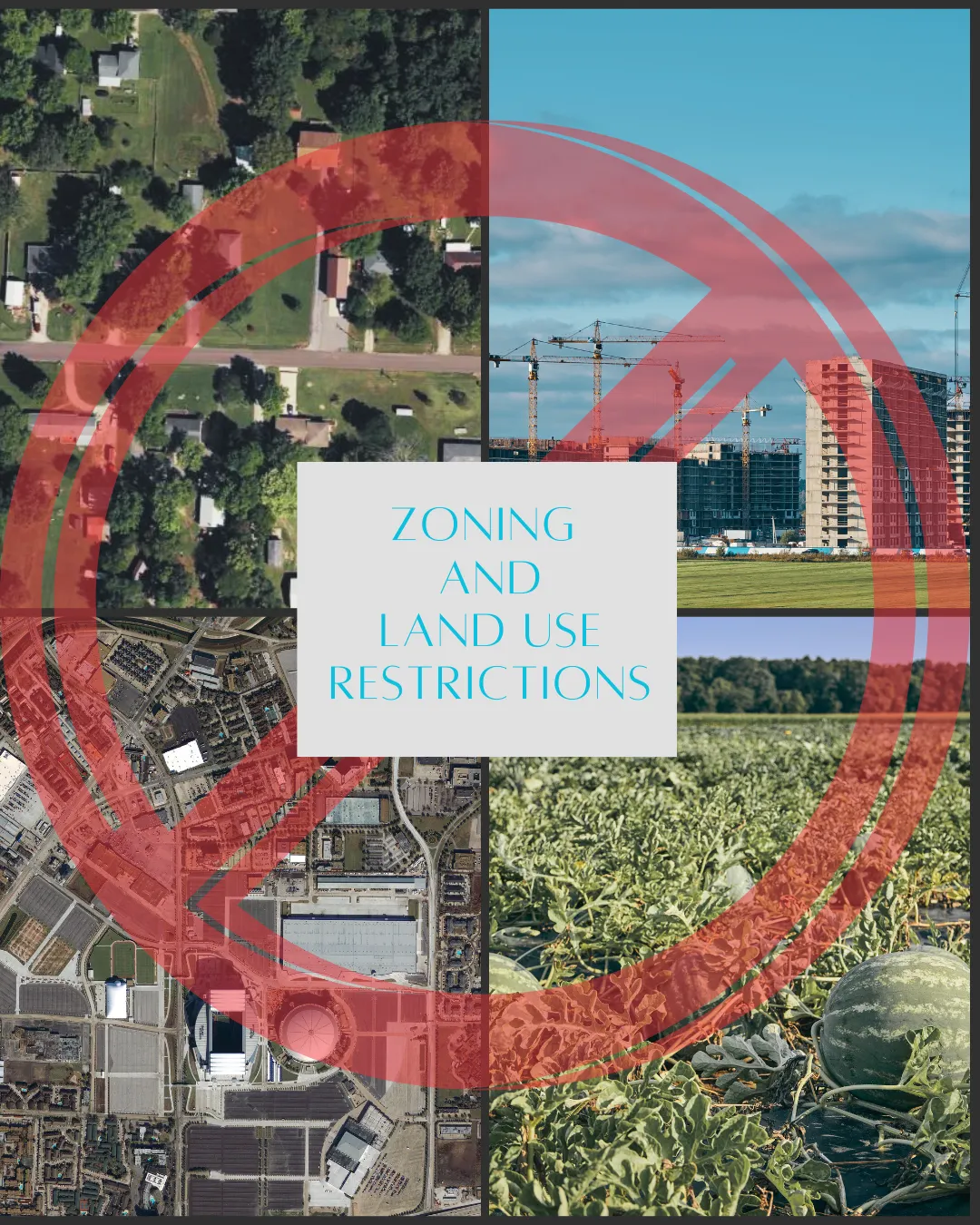Land vs. Houses
Everything You Know About Real Estate Doesn't Apply to Vacant Land
The fundamental differences that every property owner needs to understand
When most people think about selling real estate, they picture the familiar process they've seen countless times: staging a house, taking professional photos, listing on the MLS, hosting open houses, and negotiating with potential buyers who need financing. It's a well-established system that works beautifully for residential properties.
But here's what catches thousands of property owners off guard every year: vacant land operates in a completely different universe.
If you own undeveloped property and you're approaching it with the same mindset you'd use for selling a house, you're setting yourself up for months of frustration, unexpected costs, and disappointing results. The sooner you understand these fundamental differences, the better equipped you'll be to make smart decisions about your land.
The Buyer Psychology Gap: Dreams vs. Reality
House Buyers Think With Their Hearts
When someone walks through a house, they're already mentally moving in. They see themselves cooking in the kitchen, relaxing in the living room, and hosting friends on the back patio. House buyers are purchasing a lifestyle, a ready-made solution to their housing needs.
This emotional connection drives urgency. They can envision their future immediately, which motivates them to act quickly when they find "the one."
Land Buyers Think With Their Calculators
Land buyers, on the other hand, are purchasing potential. They're not seeing a finished product – they're evaluating raw materials for a project that exists only in their imagination. This requires a completely different decision-making process.
They need to consider:
- Development costs and feasibility
- Zoning restrictions and permits
- Access roads and utilities
- Soil conditions and topography
- Environmental regulations
- Long-term market trends
The result? Land buyers take significantly longer to make decisions. What might be a 30-day process for a house can easily stretch to 6-12 months for vacant land – if it sells at all through traditional channels.
The Marketing Challenge: Selling Something That Doesn't Exist Yet
Houses Sell Themselves
A well-presented house practically markets itself. Buyers can see exactly what they're getting: three bedrooms, two bathrooms, updated kitchen, finished basement. The value proposition is crystal clear.
Professional photos showcase the property's best features, virtual tours let buyers explore from their couch, and staging helps them imagine their belongings in the space.
Land Requires Imagination (And Most People Don't Have It)
Try to market vacant land the same way, and you'll quickly discover the limitations. What do you photograph? An empty field? A cluster of trees? A dirt road leading to... nothing?
Most people cannot visualize potential. They can't look at 10 acres of raw land and see a beautiful homestead, a profitable development, or a peaceful retreat. This fundamental limitation in human psychology is why vacant land sits on the market month after month, even when it's priced reasonably.
The harsh reality: Traditional real estate marketing tools were designed for finished properties, not raw potential.
The Financing Nightmare That Kills Land Deals
House Financing is Streamlined
Banks love lending money for houses. The property itself serves as excellent collateral, there are established valuation methods, and there's a ready market if foreclosure becomes necessary. Most house buyers can secure financing with as little as 3-5% down.
Land Financing is Complex and Limited
Vacant land financing is an entirely different beast. Banks view undeveloped property as high-risk for several reasons:
- Harder to value accurately
- Smaller pool of potential buyers if foreclosure occurs
- No rental income potential to offset mortgage payments
- Higher likelihood of buyer default
Most lenders require 25-50% down payments for land purchases, and interest rates are typically 1-2% higher than residential mortgages. Many banks simply don't offer land loans at all.
What this means for sellers: Even when you find an interested buyer, there's a significant chance their financing will fall through, leaving you back at square one after weeks or months of waiting.
The Agent Knowledge Gap
Realtors Know Houses
Most real estate agents are house experts. They understand residential markets, know how to stage properties effectively, and have networks of contractors, inspectors, and other professionals who support house transactions.
Few Agents Understand Land
Land requires specialized knowledge that most realtors simply don't possess:
- Zoning laws and land use regulations
- Environmental restrictions and wetland delineations
- Agricultural exemptions and tax implications
- Development potential and utility access
- Survey requirements and boundary disputes
When you list vacant land with a typical residential agent, you're often paying full commission to someone who's learning about your property type on the job. They may mean well, but they lack the specialized expertise that land transactions require.
The result? Your property gets treated like a house that happens to be empty, rather than being marketed to the specific audience that actually buys land.
The Time Value Problem: Why Waiting Costs More Than You Think
Houses Appreciate While You Wait
If your house doesn't sell immediately, you can usually wait it out. Houses typically appreciate over time, you're living in the property anyway, and the costs of ownership (mortgage, insurance, maintenance) are expenses you'd have regardless.
Land Bleeds Money While You Wait
Vacant land, especially if you don't live on it, is a different story entirely. Every month your land sits unsold, you're paying:
- Property taxes (often with no homestead exemption)
- Insurance premiums
- Potential loan payments
- Maintenance costs (brush clearing, road maintenance, security)
- Opportunity costs (money tied up that could be invested elsewhere)
For many landowners, these carrying costs add up to hundreds or thousands of dollars monthly. After six months of unsuccessful marketing, you may have spent more in holding costs than you would have saved by accepting a direct cash offer from the beginning.
The Seasonal Sales Trap
Houses Sell Year-Round
While spring and summer are typically better for house sales, motivated buyers purchase homes throughout the year. People need housing regardless of the season.
Land Has Dramatic Seasonal Swings
Land sales, particularly in northern climates, are heavily seasonal. Most buyers want to see property when it's accessible and at its best – not covered in snow or during mud season when roads are impassable.
This seasonality means you may have only 4-6 months per year when your property is realistically marketable through traditional channels. Miss that window, and you're looking at another year of carrying costs.
The Inspection and Due Diligence Maze
House Inspections Are Standardized
Home inspections follow established protocols. Buyers know what to expect, and most issues can be addressed with repairs or credits at closing.
Land Due Diligence is Complex and Unpredictable
Land buyers may require:
- Surveys and boundary verification
- Soil tests and percolation studies
- Environmental assessments
- Wetland delineations
- Archaeological surveys
- Zoning and permit research
Each of these studies takes time and can uncover deal-killing issues. What starts as a simple sale can quickly become a months-long investigation that may ultimately result in the buyer walking away.
Why Direct Sales Make Sense for Land
Understanding these fundamental differences between houses and land helps explain why many savvy landowners are bypassing traditional real estate channels entirely.
Professional Land Buyers Eliminate the Variables
Companies that specialize in land acquisition understand all the complexities we've discussed. They:
- Evaluate properties quickly because they understand land values and potential
- Have cash readily available, eliminating financing delays
- Know the regulatory landscape and can assess development potential accurately
- Buy properties as-is, without lengthy inspection periods
- Close transactions efficiently because they understand the unique aspects of land deals
When Speed Matters More Than Maximum Price
Here's a conversation many landowners need to have with themselves: Is it better to potentially get 10-15% more money after 8-12 months of uncertainty, or to get fair market value with certainty in 30-45 days?
Consider the math:
- Holding costs for 8 months could easily eat up 5-10% of your land's value
- Agent commissions typically consume 6-7%
- Market uncertainty – land values can fluctuate significantly
- Opportunity cost – what could you do with that money if you had it today?
The Peace of Mind Factor
Beyond the financial calculations, there's something to be said for certainty. Knowing your property will definitely sell, on a specific timeline, for a guaranteed amount, allows you to make other life decisions with confidence.
Whether you're:
- Planning retirement and need to liquidate assets
- Dealing with inherited property you don't want to manage
- Facing financial pressures that require quick solutions
- Living far from your land and tired of long-distance management
The value of a guaranteed, streamlined transaction often outweighs the potential of squeezing out every last dollar through traditional channels.
The Land Specialist Advantage
Deep Market Knowledge
Professional land buyers understand local markets intimately. They know which areas are appreciating, what types of land are in demand, and how various factors affect value. This knowledge allows them to make fair offers quickly and confidently.
Streamlined Processes
Because they handle land transactions exclusively, they've optimized every step of the process. They know exactly what paperwork is needed, which title issues commonly arise, and how to resolve problems efficiently.
Multiple Exit Strategies
Professional land companies often have various end uses in mind for properties. They might sell to developers, investors, homesteaders, or other land companies. This flexibility allows them to purchase a wider variety of properties than individual buyers might consider.
Beyond Land: Expanding Your Options
While our expertise lies primarily in vacant land transactions, we recognize that many property owners have diverse real estate needs. If you have residential or commercial properties alongside your land holdings, we can often structure comprehensive solutions that address your entire portfolio.
The same principles that make direct sales attractive for land – speed, certainty, and simplified processes – often apply to other property types as well, particularly when sellers prioritize timeline and convenience over maximum market price.
Making the Right Decision for Your Situation
Traditional Sales Might Work If:
- You have plenty of time and no carrying cost pressures
- Your land is highly desirable and in a hot market
- You're willing to invest in professional marketing and site preparation
- You can afford to wait through multiple seasons if necessary
- You have an agent who truly specializes in land sales
Direct Sales Might Be Better If:
- You want certainty and a predictable timeline
- Carrying costs are adding up month after month
- You've already tried traditional marketing without success
- You live far from the property and want to simplify your life
- You need to liquidate the asset for financial or estate planning reasons
- You value your time more than potentially squeezing out every dollar
The Bottom Line: Different Assets Require Different Strategies
The real estate industry has done landowners a disservice by promoting the myth that all property should be sold the same way. Houses and land are fundamentally different assets that attract different buyers, require different marketing approaches, and involve different risk factors.
Understanding these differences empowers you to make informed decisions about your property. Whether you choose traditional marketing or direct sale, you'll be making that choice based on realistic expectations rather than assumptions borrowed from residential real estate.
The most successful landowners are those who recognize that vacant land plays by its own rules – and adjust their strategy accordingly.
Ready to Explore Your Options?
If you're tired of treating your land like a house and ready to work with specialists who understand the unique nature of vacant property, we'd love to discuss your situation. Every property is different, and every owner has unique circumstances that influence the best path forward.
We've built our expertise helping landowners across the country navigate these complexities, and we understand that the right solution isn't always the same for everyone. Whether you ultimately choose to work with us or pursue other options, our goal is to ensure you have the information you need to make the best decision for your specific situation.
Contact us today to discuss your property and explore what options make sense for your circumstances.
📞 Call: 979-269-7323
📧 Email: [email protected]
🌐 Visit: landavion.com
Land Avion LLC – Because land isn't just another piece of real estate.
Serving landowners nationwide with personalized solutions for every situation.






